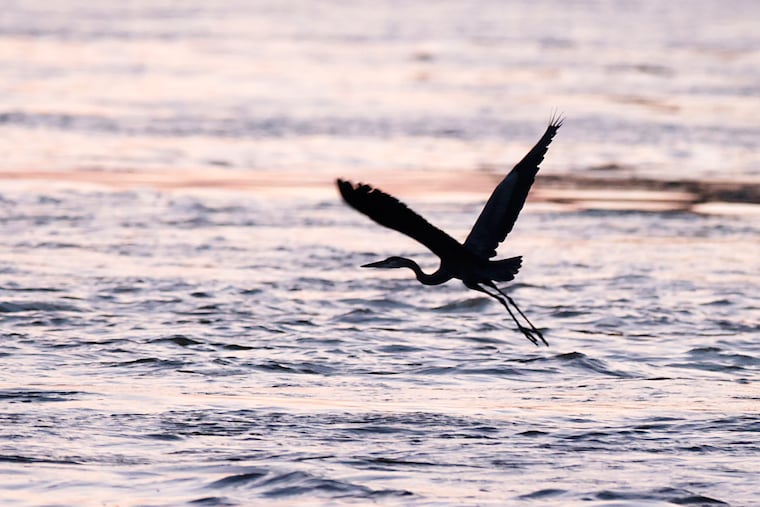Pharma giant Bayer to pay Pennsylvania $100M over widespread contamination
The state has reached a settlement with former agrochemical company Monsanto, now owned by Bayer, for contaminating 1,300 miles of streams and 3,600 acres of lakes with PCBs over five decades.

Pennsylvania said Tuesday that it has reached a $100 million settlement with former agrochemical company Monsanto, now owned by Bayer, for contaminating 1,300 miles of streams and 3,600 acres of lakes with hazardous waste known as PCBs over five decades.
Rich Negrin, secretary of the state’s Department of Environmental Protection, said the money will be used to recover costs Pennsylvania has already absorbed to deal with contamination and for additional cleanup.
Though Pennsylvania sued Monsanto in December 2020, the company had already been acquired by German-based pharmaceutical company Bayer in 2018.
“The Department has spent years protecting Pennsylvanians from PCBs,” Negrin said in a statement. “By securing this settlement, DEP is holding Monsanto accountable for what it did to Pennsylvania’s water and making sure that Monsanto is paying for the work the Commonwealth has done to keep its water clean. This agreement demonstrates our commitment to protecting the rights and resources of all Pennsylvanians.”
The lawsuit
Pennsylvania sued Monsanto for producing polychlorinated biphenyls, more widely known as PCBs — odorless, tasteless, man-made chemicals that can be absorbed in the bodies of small organisms and fish. The DEP said that, as a result, people who eat fish from Pennsylvania may be exposed to PCBs that accumulated over the years.
“For decades, PCB pollution has contaminated fish in our waterways, disrupted recreational opportunities, and impaired a valuable food source for millions of Pennsylvanians,” Tim Schaeffer, executive director of the Fish and Boat Commission, said in a statement. “On behalf of the anglers of Pennsylvania, we are proud to join our partner agencies in securing this settlement as we work to protect our cherished aquatic resources.”
Bayer has been dealing with lawsuits against Monsato by multiple states regarding PCBs. New Jersey sued the same companies last year over PCBs. And the company settled with Oregon for $698 million.
» READ MORE: N.J. sues Monsanto over ‘reckless’ PCB contamination, including along Delaware River
In an email to Bayer, The Inquirer requested a comment on the settlement.
A representative for Monsato replied with a statement saying the company has agreed to resolve all claims against it, without admitting liability or wrongdoing, for $99.5 million plus $500,000 “in costs.” The statement said Monsanto stopped producing PCBs in 1977 and “never manufactured or disposed of PCBs in Pennsylvania’s environment.”
“Monsanto remains committed to defending existing and future cases at trial and will only consider settlements when it is in the Company’s interest to do so,” the statement said.
It called the Oregon settlement an “outlier.”
‘Substantially persist in the natural environment’
When Pennsylvania filed suit against Monsanto in December 2020, it also named the companies Solutia and Pharmacia, which in the late 1990s took on parts of the overall business once operated under what’s referred to in the lawsuit as “Old Monsanto.” Solutia is owned by Eastman Chemical Co., and Pharmacia is owned by Pfizer.
But it was Monsanto that started in 1929 to make, market, sell, and distribute 99% of the PCBs eventually used throughout the United States. The chemical compounds was used in paints, caulks, inks, dyes, lubricants, sealants, plasticizers, coolants, hydraulic fluids, fireproofing, and industrial electrical equipment such as capacitors and transformers. Monsanto also infamously manufactured dichlorodiphenyltrichloroethane, or DDT, which was banned in the U.S. in 1972 after adverse environmental and human health effects.
PCBs, were once highly valued and even required in building codes, but were banned in the U.S. in 1979.
According to a Pennsylvania court filings, Monsanto “acknowledged as early as 1937 that PCBs produce systemic toxic effects upon prolonged exposure” and would “substantially persist in the natural environment rather than break down over time.”
The filing states Monsanto was also aware PCBs would “inevitably volatilize and leach, leak, and escape their intended applications, contaminating runoff during naturally occurring storm and rain events and entering groundwater, waterways, waterbodies, and other waters, sediment, soils, and plants, as well as fish and other wildlife.”